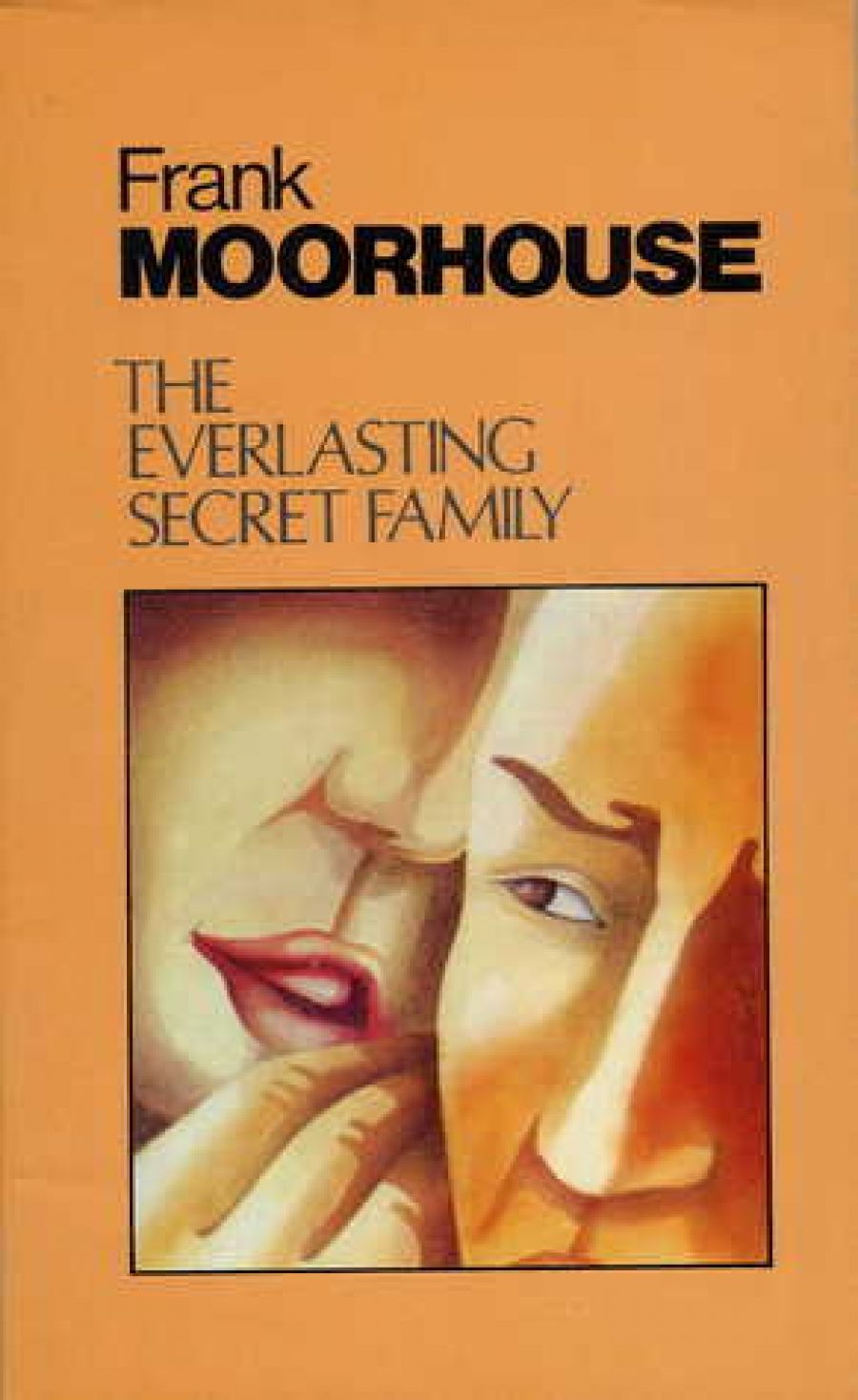
- Free Article: No
- Contents Category: Short Stories
- Review Article: Yes
- Article Title: An uneven new collection
- Online Only: No
- Custom Highlight Text:
This sixth work of fiction by Frank Moorhouse consists of four groups of related stories. The first and by far the best group, ‘Pacific City’, contains six stories centred around the figure of Irving Bow, proprietor of a cinema located near an unbuilt town named Pacific City during the late nineteen-twenties (not the nineteen-thirties as the back cover claims).
- Book 1 Title: The Everlasting Secret Family
- Book 1 Biblio: Angus & Robertson, $3.50 pb, 288 pp
- Book 1 Readings Link: https://www.booktopia.com.au/the-everlasting-secret-family-frank-moorhouse/book/9781740511360.html
The second group, ‘The Dutch Letters’, is a collection of correspondence which the unnamed narrator finds when he breaks into the private locker of the student whose room he is staying in during a conference.
The third set, ‘Imogene Continued’, concerns an experience the narrator has during another (or the same?) conference, when his former girlfriend is raped by three Aboriginals.
And the fourth, the title collection, is a pornographic account, firstly of a sexual relationship between a successful politician and a young boy, and later between the same young boy now grown up and the politicians thirteen-year-old son.
Like virtually all of Moorhouse's fiction, this book picks up themes and characters from his earlier work. Pacific City is set in the period of Between Wars, the film that Moorhouse scripted, and mentions Dr Trenbow, the main character in that film. ‘Imogene Continued' picks up several of the situations and characters from Conference Ville and has as its main character the girl Cindy, who has appeared in several Moorhouse stories before.
Frank Moorhouse is nearly always at his best when he is detachedly surveying Australian cultural mores and this might help account for the quality of ‘Pacific City’. There is a fondness, even gentleness at this glance back at a tiny group of men struggling to find an oasis in the cultural desert of an Australian coastal town that is comparatively unusual in his writing, and the festering dreams and fantasies of Irving Bow, the ‘proprietor or darkness’, are also sympathetically and perceptively observed.
The rest of the collection, though, is scrappier. ‘The Dutch Letters’ reads exactly as if it came into existence in the manner the narrator describes, and documentary verisimilitude is hardly enough in itself to sustain our interest; nor are they much fleshed out by the explanatory notes to references in the letters, supplied by the narrator. ‘Imogene Continued’ contains one very funny story, ‘A Cat Called Teleosis’, in which a group of conferees break up a lecture by ridicule, but mostly this story of a white girl too guilty to file charges against her black molesters has a familiar and predictable look about it. Cindy mouths clichés so constantly that the narrator’s closing recollection of her astonishing charm and intelligence, which could have been moving in itself, is not very plausible.
The concluding group of six stories reads like a fantasised account of a homosexual relationship involving complete subjugation on the young man’s part, a kind of male Story of O. There seems to be little point to them except eroticism for its on sake until near the end when the narrator says proudly:
I was joined to a line through history which went back to the first primitive tribal person who went my way, who took a virgin boy lover, and every boy who became a man and took, in due turn, a boy lover, through to Socrates. I had played a part now in the continuation of that chain. I had played my first part as a child in becoming a man’s lover. I had now played my second part. I now belonged fully in that historical line. It was a wat if passing on and preserving the special reality, a way of giving new life, the birth for the boy of a new reality, of joining him to a secret family, the other family. To belong to that chain is to belong to another life.
To claim pleasure from sleeping with a thirteen-year-old boy is perfectly understandable, whatever one’s view of its morality. To claim that it gives one membership to some secret family of man is pretentious nonsense.
Individually, the four groups of stories have considerable coherence, in fact ‘Imogene Continued’ and ‘The Everlasting Secret Family’ in particular are virtually novellas. Among the four of them, though, there is little real connection. These narratives were a bit too discontinuous for me.


Comments powered by CComment